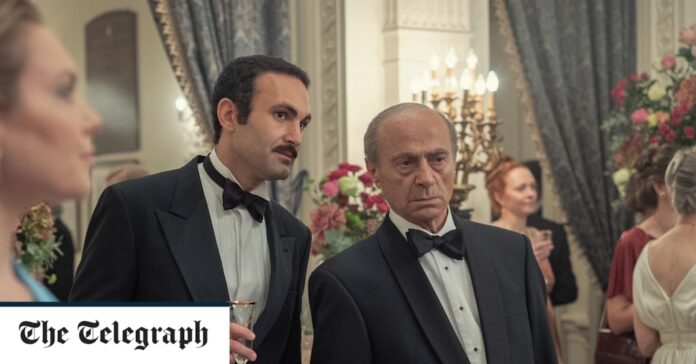The Palestinian actor steals the new series with his sensitive, playful portrayal of the fearsome Harrods tycoon. How did he do him justice?
Salim Daw was at home with his wife in Haifa when he got the call. A few weeks later he was in a freezing, deserted London, with many places shuttered because of Covid, meeting in person the producers and casting directors for The Crown. “I couldn’t believe they were wanting me to play Mohamed Al-Fayed,” he tells me. “It is such big news for me. The role of my life.”
Fast forward to the present day and Daw has emerged as the breakout star of Season five, thanks to his impeccably observed performance as the former Harrods owner and of course, father of Dodi. We see him early on in episode three in Paris, playing hardball with an icily sceptical Madame Monique Ritz as he and Dodi (Khalid Abdalla) broker the deal to buy the Ritz, his expression tight, implacable and as thunderous as an incoming storm.
We see him later at the Ritz, which he of course now owns, at a party to celebrate its opening and where, anxious about the unseen codes of this new dazzling white society, he asks Dodi to remove a black waiter for fear his face doesn’t fit. (The waiter, Sydney Johnson (Jude Akuwudike), is the former valet of King Edward VIII; as soon as Al-Fayed realises Johnson might be useful in instructing him in the ways of the English, he hires him as a valet for himself. The unexpected friendship that follows is a highlight of the series.)
And we see him twice at a horse race in England where the Royal Family is in attendance, desperate for Imelda Staunton’s sniffy haughty Queen to acknowledge him, even to sit next to him. Instead he gets Elizabeth Debicki’s dangerously restless Diana, a fellow loner and resentful outlier. In a series of lovely playful exchanges both recognise in each other an instant solidarity.


